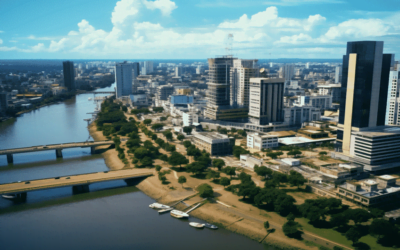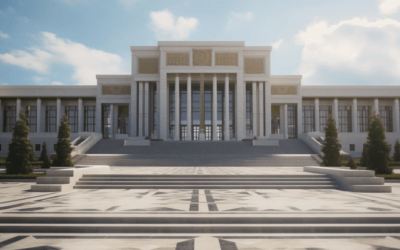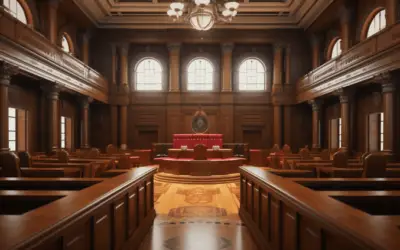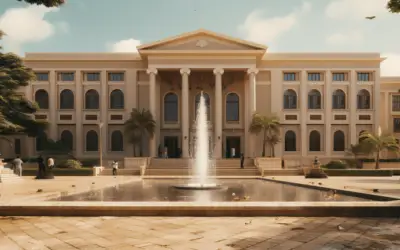You know, it can be quite a head-scratcher when you’re passionate about flying drones and want to explore the beautiful skies of the Dominican Republic.
You might be wondering, “What are the rules and regulations for drone flights in this breathtaking Caribbean destination?” Well, you’re not alone! Many enthusiasts, just like you, have searched for clarity on Dominican Republic Drone Laws, and I understand the quest for answers.
The good news is, that I’ve delved deep into the world of Dominican Republic Drone Laws, conducted extensive research, and uncovered valuable insights to quench your curiosity.
I’m excited to share my findings with you, providing answers to the questions you’ve been pondering. Whether you’re a hobbyist, a commercial operator, a tourist, or even a government entity looking to navigate the skies with your drone, I’ve got the information you need.
So, if you’re seeking the key to understanding the Dominican Republic’s drone regulations, look no further. In the pages that follow, we’ll explore the ins and outs of drone operation in this stunning country.
Whether you’re eager to uncover the legal requirements, and operational guidelines, or just want to ensure a safe and enjoyable drone experience, this article is your go-to source.
So, let’s dive in and unravel the Dominican Republic Drone Laws together, ensuring your next drone adventure is smooth, safe, and spectacular.
Regulatory Authority

Let’s delve into the heart of the matter—the regulatory authority overseeing the skies of the Dominican Republic. Understanding the authority and its role is like knowing the conductor of an orchestra; they set the tempo and ensure everyone plays in harmony.
In the Dominican Republic, that conductor is the Directorate General of Civil Aeronautics, commonly known as IDAC. So, let’s open the curtains and shed some light on the workings of this crucial entity.
Introduction to the Directorate General of Civil Aeronautics (IDAC)
Picture IDAC as the guardian of the Dominican Republic’s airspace. They’re like the vigilant lighthouse keeper, ensuring the safe passage of ships in a stormy sea.
The Directorate General of Civil Aeronautics (IDAC) is the primary authority overseeing all things related to civil aviation, including drones. From issuing guidelines to managing permits, they play a pivotal role in the regulatory framework that governs the skies above this picturesque nation.
Role and Responsibility of IDAC in Drone Regulation:
To put it in perspective, think of IDAC as the referee in a game. Their role is to ensure fair play, making sure each player (or in this case, drone operator) follows the rules.
IDAC sets and enforces the rules and guidelines that drone operators need to abide by. This includes everything from defining no-fly zones to specifying altitude limits.
Their responsibility is not just about maintaining order but also about fostering a safe and secure environment for all who share the airspace.
Also Read: Dominica Drone Laws 2024
Categories of Drone Operators

Now, let’s venture into the diverse world of drone operators in the Dominican Republic. Imagine this as a vibrant mosaic, each piece representing a different category of drone enthusiasts, each with its own set of rules and guidelines to abide by.
Understanding these categories is like understanding the flavors on a menu—it helps you choose the right dish for your palate. So, let’s explore the categories and what each brings to the table.
Hobbyist Drone Operators
Picture a weekend painter with a canvas and palette, expressing themselves through strokes of color. Hobbyist drone operators are somewhat like that—they use their drones as a means of expression and enjoyment.
For them, the sky is their canvas, and the drone is their brush, creating beautiful aerial art. Let’s delve into what’s permissible and what they need to keep in mind while painting their sky-high masterpieces.
Permissible Actions and Regulations
Just like our painter needs to choose the right colors and brushes, hobbyist drone operators need to select their airspace and actions wisely.
They can indulge in the sheer joy of flying their drones, capturing mesmerizing vistas, but within defined limits. Think of these limits as the edges of a canvas—they give structure to the artistic flight.
Registration and Insurance Requirements
Similar to how an artist signs their masterpiece, hobbyist drone operators need to register their drones, marking them as their own.
It’s like putting a signature on their creative expression. Insurance is the frame that protects the artwork; it provides a safety net, ensuring that both the drone and others are protected during these artistic flights.
Operation Guidelines and Safety Measures
Just as our painter needs to follow certain techniques and safety measures in handling their tools, hobbyist drone operators must adhere to operation guidelines.
These include not endangering lives or property, maintaining a visual connection with the drone, and respecting the airspace of others. It’s like following a specific brushstroke technique to create a beautiful composition.
Commercial Drone Operators
Now, let’s shift gears and enter the realm of commercial drone operators. Imagine them as professional photographers capturing the essence of a moment through their lenses, but their lenses a drones.
These operators take their flights from hobby to profession, bringing a different dimension to drone usage. Let’s soar into what they can do and the responsibilities that come with it.
Allowed Activities and Rules
Commercial drone operators wear a different hat; they’re not just creating art for enjoyment but also capturing it for a purpose.
From aerial photography to surveying land, their drones become tools for trade. However, just like any profession, there are specific activities and rules they need to follow. It’s like having a defined style in photography that sets them apart in the industry.
Licensing, Registration, and Insurance
Consider licenses as the accreditation a renowned photographer holds—proof of their skill and expertise.
Commercial drone operators need this recognition too. Registration is akin to displaying their portfolio, showcasing their capabilities. Insurance, on the other hand, is their liability contract, ensuring they are accountable for their work.
Compliance with Operational and Safety Guidelines
In the world of commercial operations, adherence to guidelines and safety measures is non-negotiable. It’s like the discipline and knowledge a professional photographer possesses, ensuring that every shot they take is not only beautiful but also safe and in compliance with the norms of their profession.
Visitors and Tourists
Now, let’s welcome our visitors and tourists who wish to experience the beauty of the Dominican Republic from the skies.
Picture them as guests in a foreign land, each carrying a drone, eager to capture the essence of this paradise. However, they need to understand the rules of this new canvas they’re about to paint. So, let’s extend a warm welcome and guide them through the intricacies of drone operations in the Dominican Republic.
Guidelines for Foreign Drone Operators
It’s a bit like stepping into an art studio for the first time. Foreign visitors and tourists may not be entirely familiar with the brush strokes of the Dominican Republic Drone Laws.
This is why it’s essential to acquaint them with the guidelines, which include obtaining proper permission and adhering to the regulations of drone operation in this land of natural wonders.
Permission and Registration Requirements
Just as one needs to acquire a visa to visit a new country, foreign drone operators must obtain permission to fly their drones in the Dominican Republic. It’s like having the necessary travel documents to cross borders. Additionally, there may be registration requirements to ensure accountability, akin to the visitor’s logbook when exploring a new place.
Safety and Responsibility while Flying Drones in the Dominican Republic
Being a responsible traveler is key to a memorable journey, and the same goes for flying drones as a visitor. Safety is paramount, just like being aware of the local customs and culture when traveling. Foreign drone operators should respect safety guidelines and the privacy of the locals while capturing the captivating landscapes of this tropical paradise.
Government Drone Operators
Now, let’s turn our attention to the government entities that use drones in the Dominican Republic. Imagine them as the custodians of the land, utilizing drones as tools for efficient management and protection. These operators play a unique role in the airspace, similar to how a curator preserves a piece of art. They need to follow specific regulations, and it’s important to understand their perspective.
Regulations and Specifications for Government Drone Use
Just as a curator needs to handle an artwork with care, government drone operators have specific regulations and specifications to follow. This ensures that their drone usage is not only efficient but also in compliance with the overarching rules of the land. Whether it’s surveillance, search, and rescue, or environmental monitoring, each operation has its defined guidelines.
Licensing, Registration, and Insurance Requirements:
Government drone operators are like professionals in their field, and they require the right credentials. Licensing is akin to a professional degree, ensuring they have the expertise needed for their responsibilities. Registration is like having a badge, marking them as official operators. Insurance is their safety net, protecting both the drone and the public in case of unexpected events.
Compliance with Safety Guidelines and Operational Restrictions
Just as a curator is responsible for the preservation of art, government drone operators have a responsibility towards safety.
They must adhere to safety guidelines, ensuring that their operations are not only effective but also secure. These guidelines might include restrictions on flying over specific areas, maintaining distance, and following established safety protocols.
Also Read: Djibouti Drone Laws 2024
General Rules and Regulations for Drone Operation

Now, let’s journey into the heart of the matter—the core rules and regulations that govern drone operations in the Dominican Republic.
Think of this as the foundation of a beautiful painting. These rules set the boundaries, much like the canvas edge. They are essential to ensure the safety, privacy, and enjoyment of all those sharing the skies. So, let’s uncover what these foundational rules entail.
Weight-based Classification
Imagine drones as birds in the sky, each with a different wingspan. Just as you’d expect different behavior from a hummingbird and an eagle, drones in the Dominican Republic are classified based on their weight.
Drones weighing more than 4.4 pounds are like the larger eagles and need to be registered and insured with the Dominican Institute of Civil Aviation (IDAC). Smaller drones under 4.4 pounds are akin to agile hummingbirds and can operate without prior registration.
Registration and Insurance
Much like car registration and insurance are a must for motorists, drone operators in the Dominican Republic need to ensure their drones are registered and insured, particularly if their drones are on the heavier side. Registration is the drone’s ID card, and insurance is its protective armor, safeguarding against unexpected situations.
Operational Guidelines
Operating a drone is like driving a car; there are rules to follow. Drone operators are not allowed to endanger people or property, ensuring safety is a top priority. Just as drivers need to stay focused, drone operators must maintain visual contact with their drones, avoiding multitasking. These operational guidelines are like traffic rules in the sky, ensuring a smooth flow of aerial “traffic.”
Safety Measures and Limitations
Safety is paramount, and it’s like wearing a helmet while biking. Drone operators should never operate their drones while under the influence, ensuring a clear and responsible mind for flying. Just as a pilot needs to avoid reckless maneuvers, drone operators must ensure their flights are steady and safe.
Prohibited Actions and Areas
Think of this as a ‘do not enter’ sign in a museum. Some actions and areas are off-limits for drone operation. For instance, flying drones over areas where firefighters are working is prohibited, ensuring that emergency responders can do their job effectively without interference.
Restrictions on Distance, Speed, and Altitude
Like speed limits on highways, there are limitations for drones. Drones must not exceed certain distances, speeds, or altitudes. These restrictions ensure that drone operations remain within safe and manageable limits.
Operating Drones from Vehicles
Just as you’re not allowed to text while driving, operating drones from vehicles is not permitted. However, exceptions are made for vessels in the water, akin to using your phone on a boat. This rule ensures that drone operations are carried out with undivided attention and care.
Also Read: Denmark Drone Laws 2024
Tips for Compliance and Best Practices

Let’s navigate through some invaluable tips and best practices to ensure a smooth and enjoyable drone experience in the Dominican Republic. These are like the seasoning to your culinary masterpiece; they add flavor and finesse to your flights, making them not only legal but also exceptional. So, let’s sprinkle some wisdom into your drone operation.
Obtaining Permissions and Authorizations
Think of this as having an event permit for a gathering. To ensure your drone adventures go off without a hitch, it’s essential to obtain the necessary permissions and authorizations. If you’re a foreign visitor, this might include applying in advance. Just like event permits to make your gathering official, drone permissions make your flights lawful and hassle-free.
Adhering to Safety Guidelines
Safety guidelines are like the guardrails along a mountain road. They’re there to keep you on the right path. Adhering to these guidelines isn’t just a legal requirement; it’s a way to ensure your drone flights are incident-free. Whether it’s maintaining visual contact, avoiding risky maneuvers, or respecting privacy, these guidelines are your co-pilot on your aerial journey.
Adapting to Changing Regulations
Much like fashion trends change with the seasons, drone regulations can also evolve. It’s crucial to stay informed about any updates or modifications to the rules.
It’s like keeping an eye on the latest fashion styles to stay in vogue. By adapting to changing regulations, you ensure that your drone operations remain current and compliant.
Being Responsible and Respectful to Local Laws
Respect for local laws and customs is akin to being a polite guest at a friend’s house. Being a responsible drone operator means respecting not only the national laws but also local ordinances.
Just as you wouldn’t want to upset your hosts, you should aim to have a positive impact on the local community by following their specific regulations. It’s all about responsible and respectful flying.
Also Read: Czech Republic Drone Laws 2024
Notes for Foreign Drone Operators

For our fellow drone enthusiasts visiting the Dominican Republic, there are a few extra considerations to keep in mind.
Think of this as exploring a new city; there’s the joy of discovery, but also the need to navigate the local nuances. Let’s unravel some essential notes to make your drone adventures in this tropical paradise unforgettable.
Importance of Advance Permission
Much like booking tickets in advance for a popular concert, securing advance permission for your drone flights in the Dominican Republic is a crucial step.
The airport’s customs department often holds drones to charge duty taxes, similar to how you might have to pay a premium for last-minute event tickets. To avoid these hassles, plan ahead, obtain the necessary permissions, and have a smoother entry into this beautiful land.
Dealing with Customs and Duties
Consider customs and duties like the entrance fee to a cultural attraction. It’s a part of your journey, and you need to navigate it. When bringing your drone to the Dominican Republic, be prepared for customs inspections. Having a letter of permission in advance can facilitate the process, similar to having a VIP pass. Remember, every country has its own way of welcoming visitors, and this is part of the warm Dominican embrace.
Application Process and Timelines
Think of the application process as making a reservation at a popular restaurant. It’s best to do it ahead of time to secure your spot. The application process for drone permissions can take up to 25 business days.
It’s like making a reservation for a special event; you need to plan it well in advance to ensure a seamless experience. So, be patient, follow the timelines, and set yourself up for a fantastic drone adventure in the Dominican Republic.
Also Read: Cyprus Drone Laws 2024
Final Thoughts on Dominican Republic Drone Laws

As we wrap up our journey through the Dominican Republic Drone Laws, it’s time to gather our thoughts and take a moment to reflect.
Picture this as the final brushstroke on a canvas, the finishing touch that brings the entire masterpiece together.
Let’s revisit the key points, reinforce the importance of responsible drone operation, and look forward to a future of updated laws and evolving guidelines.
Recap of Key Points and Regulations
Before we bid adieu to our exploration, let’s quickly recap the key points and regulations that you, as a drone enthusiast, need to keep in mind.
Whether it’s weight-based classifications, registration and insurance requirements, operational guidelines, or safety measures, each point plays a crucial role in ensuring safe and enjoyable drone flights in the Dominican Republic.
Think of it as remembering the essential ingredients in your favorite recipe; each one is vital for a perfect dish.
Emphasizing Responsible Drone Operation
Much like being a responsible traveler in a foreign land, being a responsible drone operator is essential.
By adhering to the laws and regulations, respecting local customs, and prioritizing safety, you not only ensure a trouble-free drone adventure but also contribute to the positive experience of others.
Think of this as being the polite guest who leaves a lasting impression at a friend’s house – it’s about being a good neighbor in the sky.
Encouragement to Stay Updated with Evolving Laws and Guidelines
The world of drones is constantly evolving, much like technology itself. As we part ways, it’s important to remember that laws and guidelines can change. Stay updated, be aware of any modifications, and adapt your drone operations accordingly.
This is akin to updating your wardrobe with the latest fashion trends – it keeps you in style and in compliance. So, here’s to a future of exciting drone adventures, evolving laws, and soaring to new heights in the beautiful skies of the Dominican Republic. Safe flying!
Also Read: Cuba Drone Laws 2024
Frequently Asked Questions
1. Do I need to register my drone in the Dominican Republic?
Yes, if your drone weighs more than 4.4 pounds (two kilograms), it must be registered with the Dominican Institute of Civil Aviation (IDAC) and should also have liability insurance. Drones weighing under 4.4 pounds can be operated without prior registration.
2. Can I fly a drone as a tourist in the Dominican Republic?
Yes, foreign visitors can fly drones in the Dominican Republic, but they must obtain permission and register their drones for the duration of their stay. It’s important to ensure you comply with the regulations and safety guidelines while flying in this tropical paradise.
3. What are the key safety guidelines for drone operation in the Dominican Republic?
Key safety guidelines include not operating your drone in a manner that endangers people or property, maintaining visual contact with the drone, avoiding changing operators while the drone is in flight, and not flying drones over areas where firefighters are operating. Additionally, there are restrictions on distance, speed, and altitude for drone flights.
4. Are there any restrictions on where I can fly my drone in the Dominican Republic?
Yes, you cannot operate drones within five nautical miles of any airport or airfield. You also need prior authorization to operate over dangerous or restricted areas. It’s essential to respect these restrictions to ensure both safety and compliance with the law.
5. How can I obtain permission to fly my drone in the Dominican Republic as a foreign visitor?
To obtain permission, it’s recommended to apply in advance before your arrival. The application process can take up to 25 business days to complete. This will help facilitate your entry into the country and ensure a hassle-free drone experience in this breathtaking Caribbean destination













